Symposiums--SIGMOBILE China(Venue : Wanda Realm )
SIGMOBILE China is the branch of ACM SIGMOBILE in China. It is the international professional organization for scientists, engineers, executives, educators, and students in China dedicated to all things mobile. The General Co-Chairs of SIGMOBILE China are Prof. Huadong Ma form Beijing University of Posts and Telecommunications and Prof. Xiangyang Li from University of Science and Technology of China. After many years of growth, SIGMOBILE China has developed numerous members from top universities in China. They work together to support the steady development of SIGMOBILE China. The main activities of SIGMOBILE China and its members include: (1) Performing research in the theory and practice of all areas related to the mobility of systems, users, data, and computing; (2) Expanding the evolution of portable computers and wireless networks; (3) Supporting the convergence of mobility, computing, and information organization; and (4) Developing improved access, services, management, and applications for mobile computing and communications.
organizers
General Co-Chairs:
Huadong Ma (Beijing University of Posts and Telecommunications, China)
Xiangyang Li (University of Science and Technology of China, China)
TPC Co-Chairs
Anfu Zhou (Beijing University of Posts and Telecommunications, China)
Tie Qiu (Tianjin University, China)
Meeting schedule
| Date: (2023-07-29) Venue: banquet hall (2) | |||||
| Time | Session | Title | Speaker | Host | |
| 13:30-13:35 | Opening | Welcome Speech | Huadong Ma, Professor, Beijing University of Posts and Telecommunications | Anfu Zhou
Tie Qiu |
|
| 13:35-14:20 | Keynote 1 | Cooperation of Autonomous Mobile Robots | Jiannong Cao, Professor, Hong Kong Polytechnic University | ||
| 14:20-15:05 | Keynote 2 | Machine Learning in Digital Twin Edge Networks | Yan Zhang, Professor, University of Oslo | ||
| 15:05-15:20 | Tea Break | ||||
| 15:20-16:05 | Keynote 3 | Security Protection in Mobile Crowdsensing Network | Zhou Su, Professor, Xi'an Jiaotong University | ||
| 16:05-16:50 | Keynote 4 | Mobile Intelligent Computing | Fan Wu, Professor, Shanghai Jiao Tong University | ||
| Date: (2023-07-30) Venue: banquet hall (2) | |||||
| Time | Session | Title | Speaker | Host | |
| 13:30-13:35 | Opening Remarks | Opening Remarks | Anfu Zhou Tie Qiu |
||
| 13:35-14:20 | Keynote 5 | Collective Intelligent Autonomous Operation Smart Farm | Jie Liu, Professor, Harbin Institute of Technology | ||
| 14:20-14:50 | ACM Rising Star Awards Forum(Part 1) | Integration of Wireless Sensing and Communication in IoT | Xiaolong Zheng, Beijing University of Posts and Telecommunications | ||
| 14:50-15:05 | Tea Break(Poster) | ||||
| 15:05-16:05 | ACM Rising Star Awards Forum(Part 2) | Ubiquitous Intelligent Sensing: New Opportunities and Challenges | Fusang Zhang, Institute of Software, Chinese Academy of Sciences | ||
| Cross-domain Personnel Identification based on Wireless Sensing | Chengwen Luo, Shenzhen University | ||||
| 16:05-16:50 | Poster paper presentation | ||||
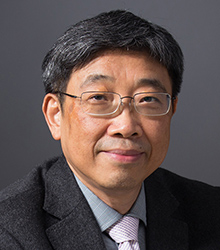
Invited Topic: Cooperation of Autonomous Mobile Robots

Jiannong Cao
Hong Kong Polytechnic University
IEEE Fellow
Abstract:Autonomous mobile robot (AMR) is a type of robot that can operate through its environment independently without requiring predefined conditions and human oversight. It has many applications including warehouses, logistics, and autonomous driving. Multiple AMRs can form a multi-robot system (MRS), where each robot has its own capabilities and sensors, and can communicate and cooperate with other robots to complete complex tasks or handle unexpected situations. Recent advancement in Edge computing and AI enables the autonomous cooperation in MRS. In this talk I will describe the requirements, research problems and the challenging issues in cooperation of multiple AMRs. Then I will introduce our works aiming to enhance the efficiency, safety, and adaptability of multi-robot systems. Addressing various challenges, we have developed a middleware framework, distributed algorithms for multi-robot coordination like collision avoidance, and a hierarchical reinforcement learning approach for multi-robot cooperation in a partially observable environment. I will also highlight the open problems and future directions.
Bio:Dr. Cao is the Otto Poon Charitable Foundation Professor in Data Science and the Chair Professor of Distributed and Mobile Computing in the Department of Computing at The Hong Kong Polytechnic University. He is the Dean of Graduate School, director of Research Institute for AIoT, director of Internet and Mobile Computing Lab and the associate director of University’s Research Facility in Big Data Analytics. He served the department head from 2011 to 2017. Dr. Cao’s research interests include parallel and distributed computing, wireless networking and mobile computing, big data and machine learning, and cloud and edge computing. He published 5 co-authored and 9 co-edited books, and over 500 papers in major international journals and conference proceedings. He also obtained 13 patents. Dr. Cao received many awards for his outstanding research achievements. He is a member of Academia Europaea, a fellow of of Hong Kong Academy of Engineering Sciences, a fellow of IEEE, a fellow of CCF and a distinguished member of ACM. In 2017, he received the Overseas Outstanding Contribution Award from China Computer Federation.

Invited Topic: Machine Learning in Digital Twin Edge Networks

Yan Zhang
University of Oslo
IEEE Fellow
Abstract:In this talk, we mainly introduce our proposed new research direction: Digital Twin Edge Networks (DITEN). We first present the concept and model related to Digital Twin (DT) and DITEN. Then, we focus on new research challenges and results when machine learning is exploited in DITEN, including federated learing, deep reinforcement learning and transfer learning. Edge association and DT mobility, as unique research questions, will be defined and analyzed. We are also expecting that the talk will help the audience understand the future development of edge computing, e.g., digital twin edge networks in the context of Metaverse.
Bio:Zhang Yan currently serves as a professor at the School of Information Engineering, University of Oslo, Norway. He is an IEEE Fellow and an IET Fellow. He has been elected as an academician of the European Academy of Sciences, a fellow of the Norwegian Academy of Sciences, and a fellow of the Norwegian Academy of Engineering. From 2018 to 2022, he has been recognized as a globally "Highly Cited Researcher" for five consecutive years. His recent primary research areas include the next generation of wireless communication networks and intelligent secure IoT. His research achievements in relevant fields have been cited over 38,000 times, with an h-index of 100. He currently serves as an editorial board member for several IEEE Transactions/Magazines, including IEEE TWC, TII, TVT, TSUSC, TGCN, TNSE, NETWORK, IoT, VTM, and Systems Journal. He also serves as an editorial board member for several core journals in China, including China Communications, Journal of Computer Science, Journal of Internet of Things, Journal of Network and Information Security, and Digital Communications and Networks.
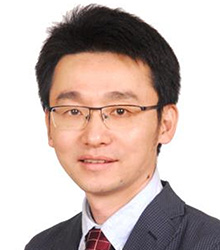
Invited Topic: Mobile Crowdsensing Network Security Protection

Zhou Su
Xi'an Jiaotong University
Dean of the School of Cybersecurity, Xi'an Jiaotong University, and Changjiang Distinguished Professor
Abstract:As a new sensing model in the Internet of Things (IoT), mobile crowdsensing networks can accomplish complex and pervasive deep sensing tasks and find numerous applications in smart city scenarios. However, ensuring the security of mobile crowdsensing networks has become a core challenge in their development. This report discusses key security technologies in mobile crowdsensing networks, including mobile user privacy protection, identification of malicious user behavior, and secure data communication.
Bio:Su Zhou is the Dean of the School of Cybersecurity at Xi'an Jiaotong University. He is a Changjiang Distinguished Professor, Chief Scientist of the National Key Research and Development Program, and a highly cited researcher in China according to Elsevier. His main research areas include communication network security, IoT security, and information-physical fusion system security. He has published a series of high-quality articles in authoritative international journals such as IEEE TIFS, IEEE TDSC, IEEE JSAC, IEEE/ACM ToN, focusing on research in network communication security and optimization. He has received Best Paper Awards at international conferences such as IEEE WCNC2023, IEEE IWCMC2022, and IEEE ICC2020. Su Zhou serves as an editorial board member for internationally renowned journals like IEEE Internet of Things Journal and IEEE Open Journal of Computer Society.
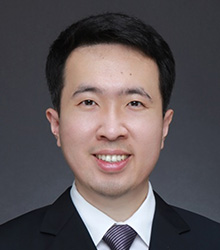
Invited Topic: Mobile Intelligent Computing

Fan Wu
Director and Professor of the Department of Computer Science and Engineering, Shanghai
Jiao Tong University
Recipient of the National Science Fund for Distinguished Young Scholars
Abstract:With the significant improvement in the computing and storage capabilities of mobile terminal devices such as smartphones, wearable devices, robots, autonomous vehicles, and drones, intelligent data processing on mobile devices (such as feature computation, model inference, and training) has become a new trend. This report will explore the development trajectory of edge intelligence technology and share our team's research progress in areas such as edge-side intelligent inference, large-scale federated learning, and edge-cloud collaborative distributed intelligent support systems.
Bio:Wu Fan is currently a Distinguished Professor, Ph.D. Supervisor, and Department Chair of the Department of Computer Science and Engineering at Shanghai Jiao Tong University. In 2020, he was awarded the National Science Fund for Distinguished Young Scholars. He has achieved a series of research accomplishments in the fields of mobile computing, edge intelligence, big data management, and intelligent games. He has published over 200 academic papers in internationally renowned journals such as JSAC, TON, TMC, TPDS, TOC, TKDE, and important international conferences including MOBICOM, MobiHoc, CoNEXT, INFOCOM, ICDE, VLDB, and KDD. He has also authored a book in English. He has served as an editorial board member for IEEE Transactions on Mobile Computing, ACM Transactions on Sensor Networks, IEEE Transactions on Network Science and Engineering, Elsevier Computer Networks, as well as a youth editorial board member for the Journal of Computer Science and Technology and a special editorial board member for the China Computer Federation Communications. He has received multiple awards, including two first prizes from the Ministry of Education Natural Science Awards, the ACM China Rising Star Award, the CCF-IEEE Young Scientist Award, the Zhong Ying Young Scholar Award, the CCF-Tencent Rhino-Bird Outstanding Young Researcher Award, the CCF-Intel Young Scholar Enhancement Program, the Shanghai Pujiang Talent Program, and seven Best Paper Awards at international academic conferences, including IEEE/ACM IWQoS 2020. He has also served as Vice Chair of the ACM China Council, Secretary-General of CCF Shanghai Branch, and Chair of CCF YOCSEF Shanghai. As a project/program leader, He has undertaken over 20 projects including the Science and Technology Innovation 2030 - New Generation Artificial Intelligence major project, the National Key Research and Development Program, the National Natural Science Foundation, and projects from the Shanghai Science and Technology Commission.
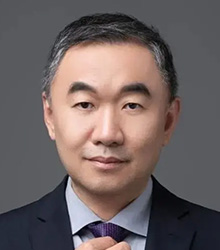
Invited Topic: Collective Intelligent Autonomous Operation Smart Farm

Jie Liu
Harbin Institute of Technology
Dean of the Artificial Intelligence Research Institute
IEEE Fellow
Abstract:In recent years, the rapid development in fields such as intelligent sensing, intelligent decision-making, and intelligent equipment has made the empowering role of AI in traditional industries increasingly evident. This progress has brought new ideas and solutions for smart agriculture. However, smart farms must address two challenges. The first challenge is the constantly changing and open-field environment, which poses difficulties for autonomous sensing, decision-making, and execution. The second challenge is the fragmented nature of AI capabilities, which presents challenges for systematic farm management. This report analyzes the technical essence and challenges of smart farms, shares our thoughts and attempts in the area of collective intelligent autonomous operation smart farms, and explores the future of smart farming technology and systems.
Bio:Liu Jie is the Director of the National Key Laboratory of Smart Farming Technology and Systems. He is an IEEE Fellow and an ACM Distinguished Scientist. His main research areas include the Smart IoT, hybrid cyber-physical systems, energy-efficient computing, and applications of artificial intelligence. He has been dedicated to industry-oriented scientific research and innovation, with over 140 published papers, an H-index of 73, nearly a hundred approved patents, and 6 best paper awards. He has also been honored with the 2021 IEEE TCCPS Outstanding Leadership Award, among other accolades.
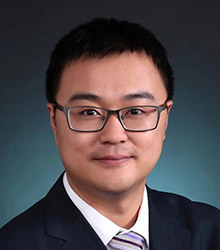
Invited Topic: Integration of Wireless Sensing and Communication in IoT

Xiaolong Zheng
Associate Professor at the School of Computer Science, Beijing University of Posts and
Telecommunications
ACM SIGMOBILE China Rising Star Awards (2021)
Abstract:Integration of sensing and communication is a research hotspot in the field of the Internet of Things (IoT) in recent years, which allows communication transmission and sensing functionality to complement each other. On the one hand, it utilizes ubiquitous wireless signals to achieve contactless perception of the environment and personnel. On the other hand, it enhances transmission through perception-aided communication, by integrating active cognitive information about signals, environment, etc., into the transmission control loop to improve wireless transmission performance. In this report, we primarily focus on discussing the opportunities and challenges of perception-aided communication and share relevant preliminary research findings.
Bio:Zheng Xiaolong is an Associate Professor and Ph.D. supervisor at Beijing University of Posts and Telecommunications. He is an ACM SIGMOBILE China Rising Star, a recipient of the China Association for Science and Technology's Youth Talent Program, and one of the inaugural "Xiaomi Young Scholars" at Beijing University of Posts and Telecommunications. His research mainly focuses on intelligent Internet of Things (IoT). He has led two projects funded by the National Natural Science Foundation of China and has published over 70 academic papers in top international journals/conferences such as TON, TMC, MobiCom, INFOCOM, SenSys, etc. He has received six Best Paper Awards/Best Paper Nomination Awards at important international academic conferences, including the Best Paper Award at IEEE SECON, a CCF B-level conference. He serves as the chair of subcommittees for important international conferences such as ICPADS and MSN, and has been a committee member for program committees of
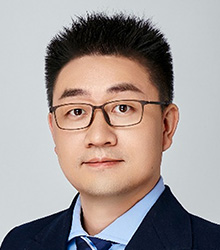
Invited Topic: Ubiquitous Intelligent Sensing: New Opportunities and Challenges

Fusang Zhang
Associate Researcher at the Institute of Software, Chinese Academy of Sciences
ACM SIGMOBILE China Rising Star Awards (2022)
Abstract:In recent years, with the development of mobile and ubiquitous computing, various mobile and edge intelligent devices have continued to increase. Perception applications in human-machine-environment fusion scenarios have become more profound, giving rise to a new intelligent sensing paradigm based on wireless signals. This technology leverages daily mobile devices to introduce various wireless signals into the living environment, such as WiFi signals, mobile devices' UWB signals, and IoT LoRa signals. In addition to fulfilling their inherent communication functions, these signals also provide the ability to sensing human vital signs, behavioral activities, and location, serving the efficient sensing goals of digitization, intelligence, and convenience. This report focuses on the new opportunities and challenges of intelligent sensing based on ubiquitous signals, presenting the latest advancements in WiFi, UWB, and LoRa sensing work, and providing new insights for expanding intelligent sensing scenarios and advancing the practical implementation of sensing technologies.
Bio:Zhang Fusang is an Associate Researcher at the Institute of Software, Chinese Academy of Sciences. He has received the ACM SIGMOBILE China Rising Star Award, the Wenjun Wu Artificial Intelligence Outstanding Youth Award, and the Beijing Science and Technology Rising Star Award. He is a member of the Youth Innovation Promotion Association, Chinese Academy of Sciences, and a recipient of the Outstanding Youth Award at the Institute of Software. He is also a senior member of the China Computer Federation (CCF). His main research areas include mobile and ubiquitous computing, intelligent sensing, and more. He has published over 50 papers in top international journals and conferences, including IEEE JSAC, IEEE TMC, ACM Mobicom, ACM Ubicomp, and ACM CoNEXT. His research achievements have been recognized with nominations for the Best Paper Award and Best Community Paper Award at the prestigious mobile computing and networking conference Mobicom, the Outstanding Paper Award at Ubicomp, the Best Paper Nomination at MobiQuitous, and the Best Paper Award at the HHME PCC conference. His research work has been featured in interviews and reports by various media outlets, including the China Science Daily and the renowned technology news media "New Scientist."
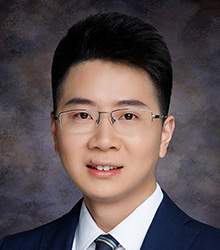
Invited Topic::Cross-domain Personnel Identification based on Wireless Sensing

Chengwen Luo
Shenzhen University
ACM SIGMOBILE China Rising Star Awards (2022)
Abstract:Ubiquitous wireless sensing has become a research hotspot in recent years in fields such as the Internet of Things and ubiquitous computing. Leveraging ubiquitous RF signals in the environment, wireless sensing aims to achieve contactless sensing of individuals and environments, enabling novel intelligent sensing services with non-intrusiveness, independence from lighting conditions, and strong privacy protection. In this report, we focus primarily on the important issue of person identification in wireless sensing. We discuss the key technical challenges involved and possible research directions, and share preliminary research findings related to this topic.
Bio:Luo Chengwen is an Associate Professor and Ph.D. Supervisor at Shenzhen University. He serves as the Assistant Director of the National Engineering Laboratory for Big Data System Computing Technology. He obtained his Ph.D. from the National University of Singapore and primarily focuses on research related to intelligent perception in the Internet of Things. He has led projects funded by the National Natural Science Foundation, including General and Young Scientists programs.Luo Chengwen has published over 70 papers in prominent conferences and journals in the field of computer networks, including SenSys, IPSN, UbiComp, INFOCOM, ICDCS, TMC, TON, TOSN, and TIOT. He serves as an editorial board member for ACM Computing Surveys and is a member of the Technical Program Committee for important conferences like WWW.He has received several awards, including the First Prize of the Science and Technology Progress Award from the Chinese Association of Automation, the First Prize of the Wu Wenjun Artificial Intelligence Science and Technology Progress Award, and the Second Prize of the Science and Technology Progress Award from Guangdong Province.

